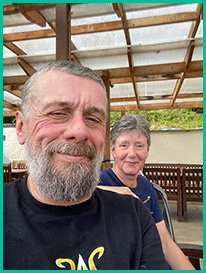Running Tips That Work: Simple Steps, Real Results… 🏃
|
Looking for running tips that actually do something? Whether you're new to running or a seasoned runner looking to improve, you have found the right space…
|
 |
The Foundation Method is all about building lasting strength, resilience, and enjoyment—whatever your experience or stage of life. We’re in our 50s and still running strong, but we know how easy it is to lose momentum. Some give up after a few weeks, others stall after years. The difference? Strong foundations.

This approach focuses on four essentials: Physical Training, Nutrition, Injury Prevention, and Mental Training. Skip them and running becomes frustrating. Build them up and it becomes something you can keep doing—comfortably and confidently—for years.
Whether you're chasing your first 5K, bouncing back from burnout, or planning that long-dreamed-of ultra, this method adapts to where you are. It’s not about doing everything at once—it’s about focusing on what matters most right now.
So, bring your motivation. We'll help with the method—and yes, if you're curious about barefoot running… we will get to that too… 👣
Who Are We?

Hi, I’m Andrew Greenhalgh and this is my wife Julie—runners, researchers, and curious minds with over 40 years of combined experience. We’ve run roads, treadmills, trails, marathons and beyond—have we made mistakes along the way? Oh definitely..!
Our academic backgrounds mean we love digging into the science—but what matters most is what actually works out there on tired legs and busy schedules. And honestly? There’s a lot of running advice online that sounds smart but can do more harm than good in some cases (don’t even get me started on running shoes)…
That’s why we built this site: to give you clear, practical running tips based on real research and real-world results. No trends. No nonsense. Just smart strategies that help you run stronger, stay injury-free and enjoy the journey...
My Running Tips .com is free to use and aside from a bit of Google AdSense to keep the lights on, we only recommend products and services we truly believe in—things that have been tried, tested, and proven useful. You bring the effort—we’ll help you make it count for something…
🤷 Where do I begin?
Our free 'Foundation Interactive Quiz' (below) helps you pinpoint which areas of your running need attention right now. Just tick a few boxes, and you'll get clear, personalised direction—backed by research, not guesswork.
From here, this site becomes your guide, packed with practical, real-life running advice to help you build momentum—year after year… 🧱
No need to overhaul everything overnight. Just take one step, then another. If you’re a beginner—great! No habits to unlearn. You bring the drive—we’ll help you aim it.
Let's build something that lasts.
Below is an overview of the 4 Foundations and the 'pillars' supporting them—look at it this way: the more supporting pillars you slot under each foundation, the stronger you’re the 4 main foundations become…

Running Tips HQ:
Remember this is for beginners as well. Want to start with something straightforward?—start our Couch to 5k. This trains you to run a 5k in 8 weeks and uses the walk-run method. The perfect way to start your running journey 😉
The 4 Foundations of Running (My Running Tips .com)
1. Physical Training
- Aerobic Base: Easy-paced runs build stamina.
- Strength: Squats, lunges, and core work reduce injury risk.
- Speed Work: Intervals, tempos, hills—get faster, safely.
- Planning: A balanced training schedule keeps you consistent.
2. Nutrition
- Whole Foods: Real food for real energy.
- Hydration: Drink to thirst. Simple.
- Pre/Post Run: Carbs before, protein and fats after.
- Weight Management: Calorie counting or try keto (carb counting) instead—see if it suits you.
3. Injury Prevention
- Rest Days: One full day off a week.
- Sleep: 7–9 hours. Always.
- Cross-Training: Stay active with variety.
- Learn & Prevent: Understand injury patterns and train smarter.

4. Mental Training
- SMART Goals: Specific, Measurable, Achievable, Relevant, Time-bound.
- Visualisation: Picture success.
- Affirmations: Build belief with positive self-talk.
- Mindfulness: Stay calm and present.
- Resilience: Bounce back from setbacks.
Last word from us…
Remember, the idea is to build small support pillars beneath your 4 main foundations. Start by picking just a couple from the list—use the links above or the right column to explore each area. Be honest with yourself: what do you really want to improve?
If you’re not sure where to begin take the quiz (above) and find the area of running to work on.
This quiz will help you narrow your focus.
With the right running tips and a clear, systematic approach, the Foundation Method helps you build habits that go the distance… 💪 🧱
Bye for now...
—Andrew & Julie
Is your couch starting to think you’re its permanent accessory? Time to prove it wrong! Our Couch to 5K walk/run program will get you from binge-watching Netflix to the finish-line in just just 8 weeks—no running experience needed. Your couch will miss you... but you won’t miss the finish line! 🏃♂️💨 For more 5K tips, click here
Can you already run 2 miles without gasping like a fish out of water? Great! You’re ready for our beginner 10k training plan. No more procrastinating—those miles won’t run themselves... (we checked)! 🏃♂️💨
📚 Injury-Free Running Tips: Packed with must-know advice for beginner runners and essential checklist for seasoned pros (more)
